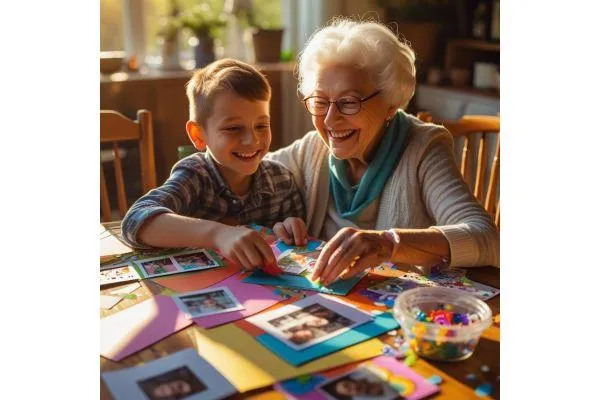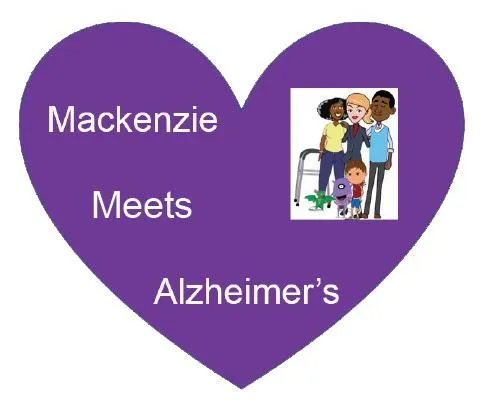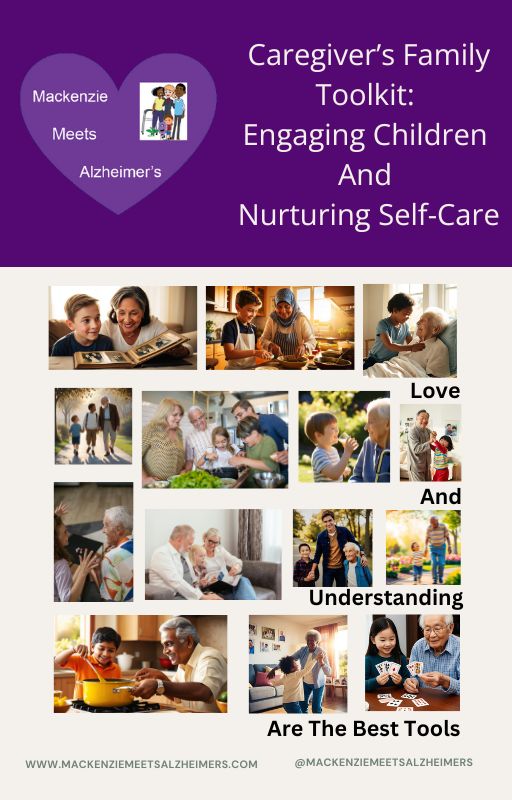
Helping Children Connect: Understanding and Interacting with a Loved One with Moderate Alzheimer's Disease
Every Sunday afternoon Max visited his grandmother whose once sharp memory had been softened by moderate Alzheimer's. Today, as they sat together in the sunlit living room, she repeated softly, “The bluebird’s song, the bluebird’s song.”
Max, curious and eager to understand, asked, “Grandma, what about the bluebird’s song?” But she only smiled gently and continued her refrain, “The bluebird’s song.”
Determined to decipher the mystery, Max rummaged through her old photo albums and found a picture of a garden filled with flowers. In the corner of the photograph, perched on a branch, was a bluebird.
“Grandma, is this the bluebird you’re talking about?” he asked, showing her the picture. Her eyes lit up with recognition.
“Oh yes, Max,” she said, her voice clearer. “Your grandpa and I loved listening to it in the mornings.”
Max smiled, realizing the bluebird’s song was a cherished memory of happier times. From then on, he made it a point to talk about bluebirds during their visits, bringing a spark of joy to her eyes each time.
Understanding Moderate Alzheimer's Disease:
Alzheimer's education is crucial as the disease progresses to a moderate stage. This is often when symptoms like memory loss, confusion, and changes in behavior become more pronounced. Understanding these changes helps in managing daily routines and expectations, both for you and your family.
We have created a PDF of Information, tips and activities to navigate Moderate Alzheimer's Disease. Click here to get the free PDF.
Tips for Managing Symptoms and Behaviors:
Establish Routines: Regular schedules can provide comfort and reduce confusion for those in the moderate stage of Alzheimer's. Maintain consistency in meal times, daily activities, and bedtimes.
Effective Communication: Simplify conversations. Use short sentences, ask yes-no questions, and maintain a calm tone to make interactions more understandable.
Safety Measures: Modify the living space to enhance safety. Consider installing locks, removing tripping hazards, and limiting access to potentially dangerous items.
Incorporating Children in Caregiving:
Bringing children into the conversation about Alzheimer's can foster understanding and empathy. It’s crucial to explain the disease in age-appropriate terms and involve them in caregiving tasks that are safe and manageable, such as helping to organize or joining in memory-sharing activities. Our free 'Toolkit For Caregivers And Their Families' on our website tells how to explain Alzheimer's to three different age groups under age eighteen.
Preserving Family Memories:
Creating a family memory book can be a powerful way to preserve important memories. Encourage children to contribute by drawing pictures or writing stories. Regularly looking through family photos and stories can stimulate memories and create a shared family history.
Activity Suggestion:
Create a memory book together, highlighting positive experiences and fulfilling caregiving moments. Each photo or memento can spark stories and remind children of the love and compassion they've shared with their loved one. This book can be used throughout the progression of the disease. Alder's mom who had Alzheimer's disease loved looking at the memory book Alder created for her.
For instructions on making a memory book, download our PDF here.
Concluding Thoughts
Juggling caregiving for a loved one with moderate Alzheimer's while raising children is no small feat. By understanding the disease’s progression, creating inclusive family activities, and maintaining safety and routine, you can make this journey more manageable. Remember, seeking support when needed is a strength, not a weakness.
Ready to explore more about creating a nurturing environment for your child and your loved one with Alzheimer's or any type of dementia? Consider purchasing our Mackenzie Meets Alzheimer's Awareness Program. Learn more here.

